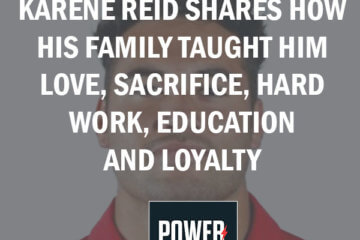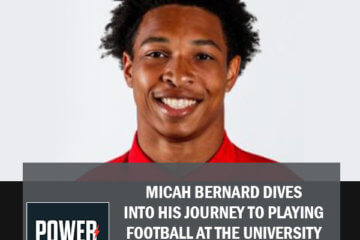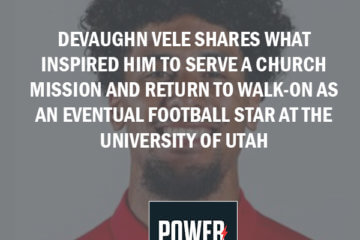Listen to the Podcast Here
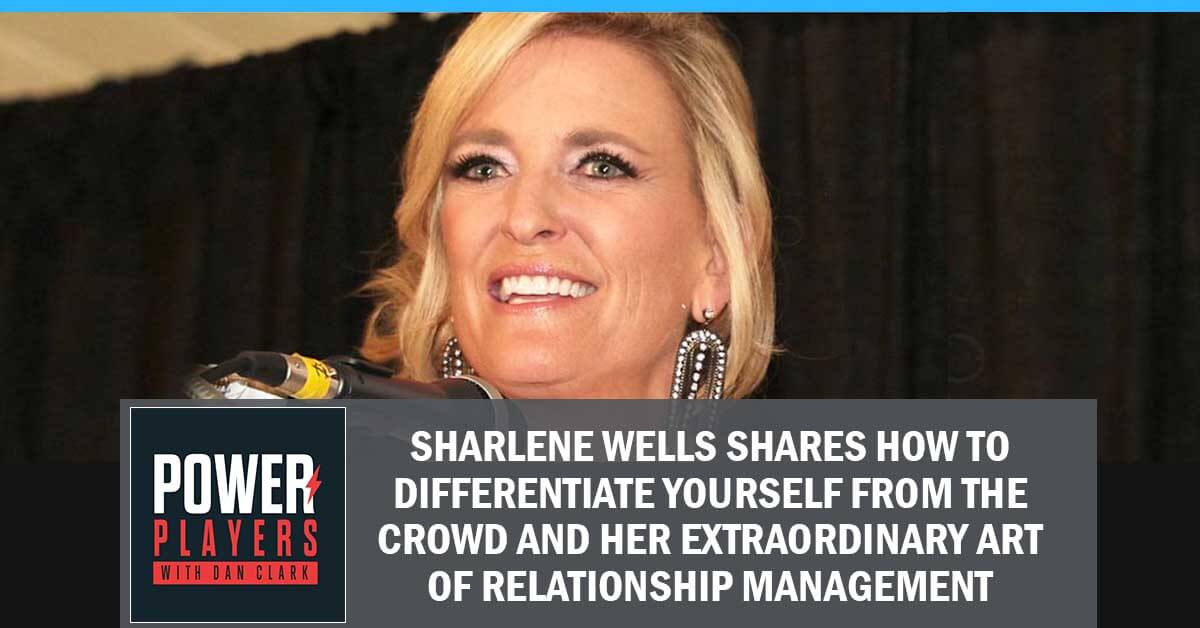
In a talent show, would you rather play piano like everyone else or be the only one that plays the harp? It’s all about how you differentiate yourself from the crowd, and that is how Sharlene Wells found success in her life. Sharlene was the first foreign-born bilingual Miss America. She was also the first woman reporter hired at ESPN. Sharlene also served as the U.S. Department of Defense appointee for women in the military and worked in the pentagon. In all those things, Sharlene stood out from the crowd. She showed her true authentic self by just being different. Join Dan Clark as he talks to his good friend about her long career. Understand distinction and how to differentiate yourself from the crowd. Learn how she was performing in front of people all her life and how that helped her win Miss America. Find out how she later got into ESPN. Discover why the military needs more women. And, learn about relationship management and more in today’s episode.
—
Sharlene Wells Shares How To Differentiate Yourself From The Crowd And Her Extraordinary Art Of Relationship Management
This is an interview with former Miss America, entrepreneur and Corporate Executive Sharlene Wells. Thanks for spending some time with me. In this episode, my longtime friend, Sharlene Wells, the first foreign-born bilingual Miss America, the first woman reporter hired at ESPN, parlayed into an Emmy Nominated twenty-year career who joined StoryRock electronic publishing producing historical records for military personnel, shares her understanding of distinction and how to differentiate yourself from the crowd.
Most significant to me is that Sharlene also served as the US Department of Defense Appointee on Women in the Military and worked in the Pentagon as the Director of Communications for the DOD Office of Personnel. You want to read this episode as Sharlene Wells gives us an inside glimpse into the extraordinary art of relationship management.
—
I’ve had so many guests. I don’t know what number of an episode this is. I don’t know how many Miss America pageants we can log in to Google at this moment. In 1985, an amazing human being catapulted into the international limelight as someone who has remained true to who she has always been. In my experience, I’m speaking in 73 countries to 6,000 audiences, I’ve met every celebrity you can imagine. Tongue in cheek, people have said, “Do you think money would change you?” I’m like, “I hope so.”
We meet people who, if they’re a jerk when they’re poor, they’re still a jerk when they’re wealthy. You meet someone true to her beliefs, values and self throughout thick and thin and the greatest fame that anyone could even dream of having, to unselfishly serve our military and families and do special things for the young mothers and their daughters, to bring them to the Miss America pageant she didn’t have to do, to travel to the downrange combat zones and taking other Miss America winners with her and to uplift the spirits of our most vulnerable military heroes.
To do all of these behind the scene, things that no one ever hears about. If you are curious at all and you have a Utah tie with Miss America from 1985, you’ll know that our guest in this episode is an interview with the one and only Ms. Sharlene Wells. I welcome you to this program but I get emotional because our parents were dear friends who have since passed away.
Her dad was an international banker, one of the smartest people you’ll ever meet and yet one of the most compassionate spiritual friends that anyone could ever dream of. His partner in crime, his wife and Sharlene’s mother are dear friends of my parents. To know your background and why you became the young woman that you are still is awesome to take all of you on this emotional and intellectual financial roller coaster ride with one of my heroes and longtime-friend, Sharlene Wells. How are you?
We go way back, years with you and your family. It’s an honor to be here with you. You are such an amazing human being. With all the good that you’ve done in the world and the stories and people that you have connected with, I’ve learned a lot from you. Thanks for having me.
Thank you for the mutual admiration. I want to ask the questions that everybody wants to know. If they Google you and look up Wikipedia, we all know it’s hard for us to update our Wikipedia stuff, I want to take everybody back to your dad being an international banker. You were born in Paraguay, which makes you the first foreign-born bilingual Miss America in history and there might not ever be another.
There’s another bilingual. She speaks Russian because her parents are from Russia but I’m the only foreign-born.
Identify the thoroughbreds in your generation because they’re going to teach you how to be a better version of yourself.
With your dad’s amazing influence on the world, you had a chance to also live in Ecuador, Mexico and Argentina. You spent your teenage years in Buenos Aires.
I sure did. I loved that. I went to an American high school with such incredible diversity. I had friends from all over the world and I thought that was normal. When I moved to Utah and most of my friends had never even been out of Utah, that was a little bit of a culture shock.
What age were you when you moved to Utah?
I was seventeen.
Did you go to East High for one year?
I went to Skyline. It’s a great school but my older siblings all went to East. They loved it. I had always grown up thinking I was going to go to East but I came back and we lived in Skyline.
One of the greatest stories that I want you to tell in a first-person narrative is that the very first Miss America pageant that you ever saw was the one you were in. Take us back to your youth. You were never a pageant girl, so talk to us.
I never grew up watching it. It was not a thing. It wasn’t something we tuned into. It was an accident that I got into that world. I was heading into my senior year and got recruited. I was at Girls State. I had won the Girls Nation Senator election. I was speaking but the head of the Utah junior missed the scholarship program for seniors in high school. She came up to me and suggested that I enter the Utah Junior Miss Program. There are lots of scholarships, so I did. I eventually earned about $15,000 in cash scholarship, which is amazing. It pays for books, room and board and everything.
I was nineteen and my mom saw an ad for Miss Salt Lake Valley and the Miss America program. She said, “You should be in this.” I was like, “They got swimsuits. I’m not doing that.” She then did a little more research and found out that Utah was the only state where we did not have a swimsuit on stage. It was a private judging process and I went, “I can do that.” You win that and then you have to go back to Nationals, where it’s on national television. I go, “Oops.” It was an unexpected process of getting there.
In the Miss America pageant, they have talent. When did you start playing the piano and singing?

Differentiate Yourself: In the Utah Junior Miss Program talent show, differentiation is a big deal. You could play piano like a hundred other people or you could play the Paraguayan harp and be the only one.
Since I was very young, my mom was a brilliant concert pianist. It was something we grew up doing. I was always scared to death to perform on the piano though. I wanted to be a piano performance major at BYU. I took one lesson and realized I had to practice for five hours and I went, “That’s not what I’m doing.” Plus, the fact that it was such a scary thing for me to perform on piano but I found out that if I was singing and playing the piano, I could do that. It didn’t scare me to death. That’s what I started doing.
When I was about thirteen, I started learning how to play the Paraguayan harp. I had gone to Paraguay with my dad because I hadn’t been there since I was six months old. We had left early. I went there and fell in love with the Paraguayan harp. It is a beautiful, exotic sound and so I started learning there in Argentina, Buenos Aires and got pretty good.
As I was trying to figure out what I do for my talent in the Utah Junior Miss Program, which was about 30% talent, I realized that differentiation is a big deal and that’s when I learned my first lesson about the power of differentiation. I could play piano like 100 other people or the Paraguayan harp and be the only one. I decided to choose the harp and won the national talent of America’s Junior Miss. That’s the one that I used when I went into Miss Utah and added singing. I’d never thought of myself as a major singer because I’m a low alto. We don’t see ourselves as soloists.
It’s always the Sopranos that have the big leads or the big Broadway shows. That was an interesting opportunity to perform. During that year, I did a lot of singing and playing the piano because I couldn’t take my heart with me everywhere but on the actual show, I did play the Paraguayan harp and sang in Spanish. When you Google it and you see it, it’s almost one of those things where you go, “What is she doing?”
It’s like George Harrison from the Beatles when he learned how to play the sitar. It was a new thing out and made you different. Take us from Miss Utah, which qualified you and invited you to the Miss America national pageant. Tell us about that week. What goes on in the Miss America pageant?
At that time, we only had a week. Now, they have a couple of different opportunities and it’s two weeks. You get some opportunity to get to know people. We had a very limited time and it was crammed. I was heading back at a very interesting time. You probably remember that the previous Miss America, Vanessa Williams, who is supremely talented and beautiful, had a huge scandal. Some pictures had shown up in Penthouse Magazine that she had been part of. She resigned and her first runner-up took over. That put a huge global spotlight on Miss America. I had no idea until I got there and saw hundreds of members of the press from all over the world. Every country I could think of was there.
I had prepared myself to talk to the press but nobody wanted to talk to me. I was from Utah. Who wins from Utah? Every single day, I would see the press room filled with interviews happening. I got an interview with somebody from Provo. I was like, “Yay. I got an interview,” but I remember there was a tall, beautiful, Black girl standing by the side. I hadn’t met her yet, so I went over and introduced myself. It turns out she was Miss Minnesota. We started talking and I said, “Have you been interviewed yet?” She says, “No, have you?” I said, “No.” We sat there like two little wallflowers. She was my third runner-up. It’s Lauren Green who’s on network news. She’s awesome.
It was one of those things where I realized, “I don’t think I’m getting noticed. That’s okay. I’m here to do my best and have fun.” That was my only expectation. I felt bad for those who were there with extremely high expectations of them. Miss Texas, Miss Oklahoma, Miss Mississippi and Miss Ohio had huge expectations, the usual. They were always on the paper. Miss Kentucky was the one that was voted to be Miss America. I was under the radar.
At the same time, you realize that it wasn’t worth being noticed for the wrong things. If you waited your turn and time, you’d be noticed for the right things. It’s better to be respected for a lifetime than to be popular for the moment. Take us to the inside of Sharlene Wells. What thoughts did you go through? Were you ever tempted to compromise or stay true to who you were and the core values on which you were raised, waiting for somebody to ask you the tough question? Were you prepared or were you like, “I’m going to be me and whatever they ask me, I’ll talk?”
As I look back on it, it was a lot easier than I thought it would be. I had prepared quite a bit because I was expecting questions about my religious faith and a lot of those kinds of questions.
When there’s a spotlight on you, you can’t see anything. You’re more confident because you feel alone.
You were very vocal about the re-election of Ronald Reagan. He was one of my favorites. You stood out because of that. You differentiate yourself by saying, “Wait a minute.”
I didn’t make it a big deal. I didn’t stand on a soapbox. I answered questions. There was a question in London and I couldn’t treat it like it was silly. You can’t. You have to respect the reporter. “That was such a good question,” but in my mind, I’m like, “What a dumb question.” I got this question on Good Morning Britain or something like that about, “I understand that you baptized dead people as part of your religious faith.” I don’t remember exactly what I said but I remember chuckling and saying, “We believe in eternal families and there’s no baptizing dead people physically.” I had to move on. When they ask about morality issues, you have to laugh about it and say, “This is what I do and who I am.” That’s okay.
With the influx and the attention put on the law of attraction, Bob Proctor, a dear friend, God rest his soul, was in The Secret and was the one that illuminated the law of attraction but he mystified and complicated it. The bottom line, we don’t attract who we want. We attract who we are. There’s a real energy and a vibration transference, frequency of vibration, as we know from person to person. In that law of attraction, were you ever bombarded by people who wanted to be your friend or wanted you to invite them into your circle but it was like oil and water and there was no connection?
It is almost my entire life. You learn how to create a bubble. I remember you saying about how you identify the thoroughbreds of our generation. That’s exactly right. You want to stay by them because they’re going to teach you. I want to be with people who will teach me and help me be a better version of myself, not drag me down. Nobody deserves to be with anybody who drags you down for any reason at all.
In the law of attraction, what they say is that the number one chemical energy or vibration that attracts people to one another, we all think it’s love, service or trust but it’s authenticity. Back to the pageant world, how many times do we laugh tongue in cheek when the contestant has asked a question and they’ve memorized the answer? They’re not present at the moment or being authentically real in their answer.
“I want world peace,” or some of the other fiasco realities that have happened with people we know personally. You were just being authentic. It didn’t matter. The question that was asked of you didn’t matter if the bright light was in your eyes. You were true to your soul, belief, core values and yourself. That authenticity is maybe why you won Miss America.
Over that year, I had to look back and ask myself, “Why did I win?” Lots of people asked me. “Why did you win? Is it because you were so pure?” I’m like, “All those other young ladies back there were amazing. Don’t say that I won because of that.” They were all great people. I had to look back and thought, “Differentiation.” They asked me a question I didn’t know. I said, “I have no idea what you’re talking about. Could you explain a little bit more?” He did. It was this complex question.
He says, “I want to know what’s your favorite book that has something to do with good versus evil.” I love books and reading but he had said something I still can’t remember but I was like, “I haven’t heard that word before. Please tell me more.” “Dante’s Inferno.” I had read that. I started talking about that one but I don’t know about that hard question.
There was another question that I got asked that stumped me. It was the judge that said, “Do you think you’re pretty?” That’s it. He said that. You’re in the spotlight and a chair with judges all around you. The cameras are on and you’re at the Miss America pageant. What do you say? I said, “I’m comfortable in my appearance.” He didn’t stop. He said, “No, tell me, do you think you’re pretty?” I said, “My mom thinks I am.” I was deflecting. If you say anything other than, “I’m okay,” then you’re not being authentic because you’re at the Miss America pageant.
He comes back to me the third time. He goes, “Are you pretty?” I was so uncomfortable. I go, “Yes.” He goes, “What’s the difference between being confident and being cocky?” We got into a little conversation about confidence versus cocky. There is a big difference. We see it in the selfies that happen on social media everywhere. If I see somebody with selfies every day, showing us how gorgeous they are, they got a big problem. That’s all I see.

Differentiate Yourself: There is a big difference between being confident and being cocky. You see it in the selfies on social media. When somebody posts a selfie every day showing how gorgeous they are, they have a problem.
How did you get comfortable in your skin at the Miss America pageant? As you know, I was a judge at the Miss USA Pageant.
I got to do that too, Miss USA and Miss America.
Miss USA has no performing talent.
Although they are very talented.
A lot of emphases are almost equal point value in the interview. With the questions I asked, every one of them started crying. I wasn’t trying to be a jerk. I was trying to milk out there. How did you suddenly become comfortable in your skin to be judged on international television in a bathing suit, go out there as one of the five finalists, get that question that everyone else was asked and find that grace? What most people don’t realize is that Sharlene was an awesome athlete. We could always pigeonhole her as a tomboy. You were competitive with the natural muscularity that comes with an athlete. Good for you. Our daughters were gymnasts.
We don’t have to go into the details but that’s the best way to chisel a body, especially as a teenager. You had all of these athletic tendencies. Maybe even that, “I’m going to punch you. If you tell me that one more time,” attitude. All of a sudden, you find yourself on the largest stage with all the emphasis on outward appearance because no one was in the interview room. Take us on that journey. How did you rise to the occasion?
As I would describe you, you are class, sophisticated elegance, grace and performance under pressure. I love and admire you so much because of what you’ve been able to sustain. Maybe the first time that you exposed it to yourself was in front of the world going, “I got this.” Take us back to the pre-national television. What were you going through? How did you prepare yourself physically and emotionally?
Many decades later, I look back on that and go, “I don’t know how I did it.” That terrifies me to think of going on stage by myself, playing the Paraguayan harp myself, with 150 million people watching that year. I didn’t know those numbers but I knew that there were 22,000 people there live. As I think about it, I remember that I am more comfortable in front of thousands of people. I don’t know why and I am less comfortable and get more nervous performing for five people. There’s something about being on a stage with a spotlight on you and you can’t see anything, so you feel alone. It’s like, “I’m by myself. I’m in my living room playing my harp and singing.” I was able to get myself through. It’s just a minute and a half.
When you watched the Paraguayan harp performance, during that performance, I had a brain freeze. I had no idea what I was doing next but my muscle memory kicked in. My fingers kept going and I’m like, “Please, what’s next?” I have no idea. That’s terrifying. That has happened to me over the years where there’s this moment in live TV that comes on and I’m like, “What was my first word?” That was something that I learned over the years. As I look back on that, that was a very scary time. We didn’t do questions that year. If we had to do questions, I would not have won. I would have bombed it. I would’ve had that big gulp in my throat if we’d had that.
In sports, we know that momentum is only as good as your next play. I quote this all the time. I played football for thirteen years and I was appalled when I first sat in the stands and realized how stupid the fans were. To our conversation, not every football play is designed to score a touchdown. This play sets up a play that allows that running back or that receiver to break for that 60-yard scamper and scored the game-winning touchdown.
You can talk to anybody you want, as long as you are prepped for it.
Let’s reverse engineer it. Take us through the monumental steps in your life that took you to the Miss America stage. I’m going to follow that up with a question, “What did that stage catapult you into as far as a reporter?” I want to get into that part of your life but let’s go back to when you say, “I went here in six degrees of separation,” whatever you want to call them that got you to that stage.
I am not a natural performer. I’m not even a natural extrovert. I am a high-functioning introvert and capable on stage. It’s weird. I am able to regain my energy by being alone. In that way, I’m an introvert. I don’t get it feeding off of everybody else but I grew up not having a plan being in front of people. That was never part of the plan. My entire life has been unplanned.
The plan was international business. I was interested in that in high school, either that or being an architect but I can’t draw, so that fell by the wayside. The only other skillset that I had was playing the piano but it was problematic being in front of people. That’s where it was like, “Maybe not that one.” I took a one-on-one broadcasting class at BYU. My teacher had said, “If you get an A in this class, this is something you could do as a profession.” I got an A. I’m going, “Somebody thinks that I can be in front of people.”
Growing up, my parents would make us perform every single time we had guests over, from the time I can remember I was little. We invite guests over for dinner and they’re like, “Sharlene, Elaine, Janet, we need you to play something. Play the harp, piano and sing or sing trios.” We were trotted out like little train monkeys all that time. I hated it. Guess what I did to my kids?
The whole time I was down in South America, all the meetings my dad had, they would always start with a trio from the Wells Girls, playing the piano or something. That helped me get more comfortable. It’s a sheer experience getting up in front of people. I started my kids on when they were five on the piano. Not because I want them to be a concert pianist but because I wanted them to be super comfortable in front of people. Each of them is very good in front of people. They’re capable of speaking or performing and that’s all I wanted.
I remember when I taught public speaking down at BYU for a couple of years, I was there when Monica gave her speech.
They’re all good. She was in Young Ambassadors but each of the kids could get up and deliver a speech. They can do great things. What I wanted was not that they were outperforming but they could do that. If I could point to one thing, it was that my parents made sure that we were playing in front of people, which made me more comfortable being in front of people. The other thing that contributed to my entire life was that I learned how to practice well.
My mom would yell from the kitchen, “Don’t be sloppy,” when I was practicing the piano. “That was sloppy. Start all over.” When it came time to perform, even if I messed up, she didn’t care. I went, “I forgot the last page,” but she would say, “Great job.” What she cared about was practicing well. I grew up having to practice well because then, when I do, things will kick in. When I had my brain freeze performing out on the Miss America stage, my muscle memory kicked in because I had practiced so well. That’s what I cared about. “Are my kids practicing well?” I’m giving them the experience they need to get in front of people. That led to all the other things.
You then won Miss America. Did you ever have that Robert Redford lie in that experience in his movie The Candidate? They ran him for president. He’s in the back of the limo. They never thought he was going to win and he’s at the back and they say, “You’re now Mr. President.” He looks at the camera and goes, “Now what?” Miss America, Sharlene Wells. Did you say, “Yeah, baby. Now what?” Do you remember?
It’s a surreal moment. I remember thinking, “My brothers aren’t going to believe this.” I remember that they told us, “If you win, you got to go over here.” Suzette Charles was the first runner-up. She’s 5’2”. I had to do this to get my crown on and bend away over to get it. There’s this massive long runway that you have to go down. I don’t remember what I was thinking, except I didn’t know what I was supposed to do. This wasn’t a job that I had expected. It’s a public relations job but I didn’t know how I was supposed to tackle it. I hadn’t thought that far. I thought, “Let’s get through the performance and interview.” Then I relaxed.
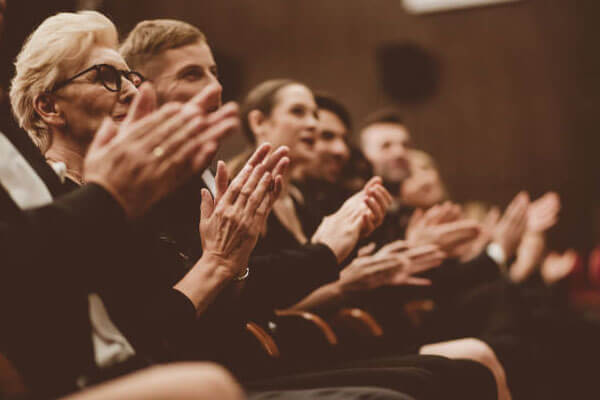
Differentiate Yourself: When the time to perform came, even if you mess up, your parents shouldn’t care. They should still say you did a great job. Because what they really care about is that you practiced well.
It’s like David Archuleta when he had recovered from vocal paralysis. He was talked into going down and trying out for American Idol. He didn’t even pack a suitcase. He was going to go down there and fly back. That’s your story. You won Miss America. It’s a full-time job. You’re on tour.
Five cities a week, 250 miles.
I’ve spoken in Atlanta, Georgia for many years in a row at the National 4-H Congress. They always have the new Miss America. I met the last 26. I needed to go back to 1985.
I don’t remember the conference. It’s a blur.
You use that platform so many fizzles off into the sunset. Momentum is only as good as your next play. You were able to parlay those network connections and your ability to speak in public, make love to that camera and be charismatic in a lens to become an extraordinary ESPN reporter. I remember Kentucky Derby. I was there for one year. I reached out to you. It mustn’t mean as much to you.
Tell us about your favorite experience as a reporter or someone you met that blew your mind and took you to the next level as far as a human being. You learn from this interview and experience. You saw a horse come from behind, whatever the case may be. Take us back to your world of sports reporting. How many years did you do that?
I did that for a total of sixteen years. I did 7 years on contract full-time with ESPN and before that, 3 years with KSL, so almost 20 years. Sideline for BYU and then seven years with ESPN covering Big Ten football. I did College GameDay, Kentucky Derby, French Open and America’s Cup. Another nine years freelance while I’m raising my kids. It was too hard with having kids and that. I got to tell you that I did not have Miss America on my resume when I went to meet with ESPN.
Here’s why. I didn’t know how they would interpret that accomplishment, whether they would think it was a plus or a minus, because I was running into people all year long, who thought it was so stupid that I was Miss America. It’s a pageant. “Are pageants relative?” I got all those questions all the time from the snooty reporters. That’s why I didn’t want to be in broadcast news anymore because I thought, “If you’ve got to be like that to be successful, I don’t want to be that.”
When I came home, I moved into international relations. I got to get back into communications. That’s when I thought, “I want to get into sports.” At least 80% of the time, I can be pleasant. I didn’t want to be that news person that had to ask all those hard questions of people to make them uncomfortable. I got a call after three years of being on the sideline with KSL.
I got a call from a New York agent who said, “I heard about you and I would like to represent you.” I said, “If you get me a job, you can represent me.” He flew me back to New York and I met with ESPN and ABC. ABC said I was too young and to come back later, which I was. ESPN wanted to go with me because the female viewership was rising and ESPN wanted to reflect that on those who were on air. I was the third female to work at ESPN.
Why is the military cutting out 50% of the available talent pool just because of their gender? The standards need to be changed.
Going back to your question about a defining moment, one of my favorite assignments was World Cup Today, where I was the host when we had the World Cup Soccer 1994 in the US. As you know, worldwide, World Cup Soccer is probably bigger than the Olympics. Not so much here in the states but in 1994, we had it here in the states. It became a big deal and the US team made it to the World Cup stage. I got to host World Cup Today, the half-hour highlights program for a few months leading up to that and I was following the US team. I got to cover them and do feature reports on them. It was so fun.
There was a third thing that was defining for me. I had been asked to go interview Diego Maradona. For those who are soccer fans, he was the co-soccer player of the century with Pelé. He was an Argentine and was phenomenal. I was supposed to interview him. He was not accepting any interviews because he was under investigation for drug abuse. He had said no interviews.
My producer had said, “I want you to go to the Argentina-Greece game. At least, do one up there.” It was one of those semi-finals that were being held all over the country or the round robins. I went there and it was in the afternoon. Previous to that or the night before, I thought, “What if I were to get an opportunity to interview him? What would I ask him?”
I wrote down all the questions. I translated it into Spanish because I knew he wouldn’t want to talk in English if I did have the opportunity. I committed it to memory because if you get somebody, you’re not looking at notes. You got to be talking. The next day, I went there and there were probably 200 members of the press down on the field, watching practice. Argentina was kicking the ball around.
I looked up and down the field and noticed I was the only female. I thought, “Differentiation again.” I told my cameraman, “I’m going to go to the other side of the field.” Nobody had said that we couldn’t go to the far side. Diego was over on this side but I said, “I’m going to go over there and if he comes near me, you come running.”
I went to the far side and twenty minutes later, he was chasing down a ball and was within our shot. I’m going, “Diego.” He looks at me and starts coming over. He’s curious. We start talking and as he reaches me, my cameraman reaches me too. I grabbed the mic and started asking every single one of my questions. Three minutes into it, I’m seeing out of the corner of my eye the rest of the press go running around the edge of the soccer field. I didn’t let go. I kept that eye contact, asking him all those questions. I got to my last question, which was asking him about the drug use and he stormed off after that but we ran upstairs.
That was the only interview with him during that World Cup. We translated it and got the subtitles on there. The thing that taught me as I was wandering the halls of the Pentagon in my previous job was that I could talk to anybody. I have to make sure I am prepped. Preparation is so key to everything to giving you that confidence that you can handle anything. After that conversation with the world’s best soccer player, I’m like, “No matter what it is that I’m doing, I got it.”
To differentiate yourself is one of the worst statements that people make about us from the US as ugly Americans because we’re pompous, believing that everybody should speak English and yet you go to a foreign country and they all speak 3, 4 or five languages. Talk about differentiation and being bilingual and fluent in Spanish. I’m sure that’s why you got his attention. It was such an authentic interview because you went where he was. You didn’t expect him to come to where you were and that’s profound. We need to point that out.
I have an interview with Roberto Durán in the third fight with Sugar Ray Leonard. He only would do it in Spanish. I interviewed him before and after. It was during that interview with him in Spanish that I got a call from NBC. They wanted to meet with me. They offered me a job but it meant that I would be gone from my family all weekend, so I turned that down. That was amazing.
Let’s transfer it to your love of the military and that’s where you and I connect. I’ve been downrange eight times. I’ve been down so many times but take us into your introduction to the military. Did you choose the military before you started at StoryRock?
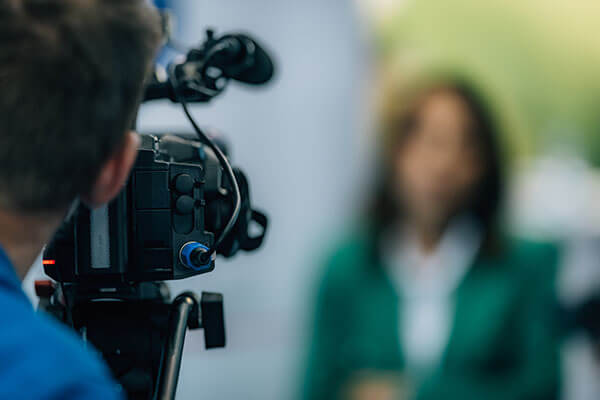
Differentiate Yourself: There are a lot of snotty reporters who think it’s stupid to put that you won Miss America on your resume. So if you’re not okay being the one to ask hard questions to be successful, don’t do it.
No.
What’s extraordinary is that Sharlene also went on to not have her Bachelor’s degree but to get her Master’s degree, which took her to the next level as a business executive. You’ve been able to parlay that into amazing opportunities where you sit but let’s take us into StoryRock and Remember My Service because we communicated and talked quite a bit about that.
I was so impressed by the difference you were making in the lives of these service men and women, especially during the Vietnam War. That was the first connection that you and I had because so many folks that heroes of mine had come back from the Vietnam War with a different experience than the Gulf War. You were able to tap into that lack of honor and appreciation and bring it alive. Talk to us about StoryRock and especially your division, Remember My Service.
As I was thinking about getting back into the workforce, my youngest was in school all day. Previous to that, I had gone to the U to get my Master’s in Organizational Communications. It took me five years to do that because I did one class a semester but it mattered to me. I started working at StoryRock, which at the time was focused on high schools having electronic yearbooks. Very soon after I got there, I realized we had been asked by the 96th Regional Readiness Command at Fort Douglas to help them document and tell their story to the 9,000 soldiers part of that Army Reserve Command.
We were a technology company. Our reaction was to give them our software, which was very user-friendly. They came back to us and said, “We don’t even have the manpower to do this. Can we outsource to you?” Given my many years of television experience, I looked around our team and I knew that we had the right people to do it. I said, “Sure, we’ll do it in-house.” We created an entire program and our awesome CEO, John Lund, facilitated this and allowed us to be able to grow this.
We started doing projects here in Utah with Utah National Guard to help them document and tell their story, whether it was a unit deployment or a historical timeframe. We did the 100 years of the Army Reserve with the 96th Regional Readiness Command. That grew from there. We worked with the Ohio National Guard and then got a contract with the National Guard Bureau. It kept growing, working with military units in the Navy, Air Force and Marine Corps.
The first big one that we had with the Department of Defense was the Korean War 60th Commemoration. It turned out so well. We did a coffee table commemorative book on the Korean War and a feature documentary that ended up in the GI Film Festival. We followed that up with almost simultaneously the Vietnam 50th Commemorative book and documentary and the Desert Storm 25th book and documentary.
With all three of these, we worked with every single Veterans Affairs Office in all 50 states to distribute these books to these Veterans of those particular wars. The Vietnam Veterans was a whole different experience. They got a double whammy. Not only did they serve in a very terrible war but they came home to a country that didn’t care. That was almost worse.
I interviewed so many Vietnam Veterans that said, “I wanted to go back to Vietnam because it was so miserable.” They would fly back here and be told, “Before you land, change into civilian clothes. We don’t want anybody to know you served.” Guess what that does to them? For the rest of their life, they hide that service. Our fellow service members in the following decades didn’t experience that. Coming home from the Desert Storm, they were treated as heroes. Vietnam Veterans didn’t get that at all. When you meet a Vietnam Veteran, you say, “Thank you and welcome home.”
Maybe even buy them a book because that brought closure. I remember being in the Chicago Airport and they had the giant larger-than-life leader of the famous bagpipe band. It’s an honorary band they’ve performed in Washington DC. All the guys are about 6’8” and then you put the huge hat on but they were playing and it got all of our attention pre-COVID.
Your family is like a tree that grows off in different directions, but the roots stay the same.
I remember standing there next to this long-haired guy, a Vietnam Vet that had an Army jacket on with some of the badges and insignias that declared he was a Vietnam Vet. He was just standing there and the doors were open. It was an American Airlines Concourse. All these troops were coming back from Desert Storm.
This was 1991. I remember him standing there and watching how they were greeted in the honor and the celebratory environment that the band had created. One of the first soldiers off the plane, they were all Army guys, walked up to him and gave him this big hug. Everybody backed off reverently as they hugged for probably 60 seconds. Your book does that for these folks. I’ve seen it and witnessed that. I’ve given away ten Korean books.
You’re exposed to this service before self-mentality, this amazing culture of the military that you and I both love and admire. From there, you were invited to work in the Pentagon and then receive an appointment by the Secretary of Defense to especially work on the committee for women in the Armed Forces, amalgamating both of those experiences and assignments. Teach us what you were doing.
From 2015 to 2019, I was appointed to the Defense Advisory Committee for Women in The Services, DACOWITS. It sounds like a sausage but those military acronyms, you love them. That one came at a very unusual time in the Military. It was the year before the Combat Exclusion Policy was being lifted. That entire year we are getting briefed by each of the services on what they’re doing to prepare for that.
The Marine Corps did not want to be part of that at all. They refuse to brief us. They were kicking and screaming but I love the Marine Corps. On January 1st, 2016, they did such an about-face and were like, “This is the new rule. We’re going to lead out.” They were amazing. When I saw that difference, they started taking the lead on how they could change their culture. It was interesting to see.
I got to go down to Fort Stewart, Georgia and we went to see a Bradley Brigade or light-armored brigade. They had several crews with women in there because women were part of the Armor, Infantry and Artillery. There was this old guy who was a trainer that came over to me. He was going to introduce us to the crew.
He had a stopwatch in his hand and said, “I got to tell you, I did not like the idea of having women in my crews.” I’m like, “Where’s this going?” He says, “I have to show you something.” He brought us over to one of the Bradleys and there were a couple of women that were working on this gun. They were going to take it out.
I wish I could tell you exactly what gun but it was a big, heavy one. He says, “I’m going to time these young women. They’re my fastest ever. On the battlefield, these matters if you can take apart a gun, clean it out and put it back.” I said, “That’s so cool.” We got to see, witness and be part of a lot of changes.
I was one of two civilians that were on that. They specifically brought me on there to provide some marketing eyeballs, especially on the communication and messaging side of things, including imagery. I went through all the websites for the military, the .mil, .gov and .coms. I went through all of the sites for each of the services. I counted every single photo and categorized it. Is it showing gender? Is it showing a traditional or a non-traditional role?
I got through there and discovered that it was not showing women in any non-traditional roles. It was behind a desk or in a kitchen. It was not showing a good percentage. Our research team dived in and because of that, we were able to make some recommendations to the Secretary of Defense. They dove in and made a whole lot of changes with imagery, especially. Young women need to see what they can be. We do have female fighter pilots.
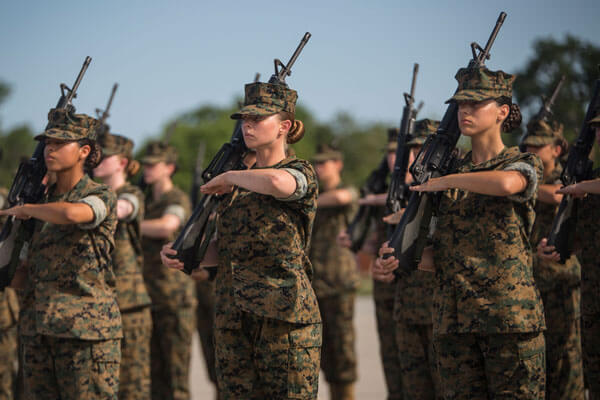
Differentiate Yourself: Women in the military need to be in non-traditional roles. They’re always behind a desk or in a kitchen. Things need to change because these young women need to see what they can be.
For the record, I’m good friends with several. Nicole Malachowski was the first Thunderbird. She’s a dear friend. I’ve had her on the show. What they will tell you is exactly what you said. “In a man’s world, they had to be better.” They took pride in that. What was cool about Nicole Malachowski is in the Air Force, they have a slang term called the Snacko. He or she is usually the lowest ranking or the newest member of the squadron and their responsibility is to keep the refrigerator stocked with snacks, soft drinks, beer or whatever the case may be.
She was the Snacko and yet in her squadron of F15 drivers at the time, she was the 1st one promoted and the 1st woman who made a Thunderbird pilot in the demonstration teams. To her credit, every single one of her guys went, “She is. No surprises. She’s better than we are. She’s at least as good.” I take so much pride in these women and their stories of, “Watch us.” They then exceed and excel, which pushed us and together, we rise.
During that time, the question came up, “Is this a social agenda for the Military? Is it about quotas?” It’s not even close. First of all, every single woman you talk to would run as fast as they could away from quotas. They did not want any quotas but second, this was a talent pool issue. When you look at less than 1% of Americans that serve in the military, why are we cutting out 50% of the available talent pool because of their gender? Things have changed. We’re not carrying 75-pound radios anymore.
That made them start looking at the standards that hadn’t been looked at for years since technology has changed everything. When they started going, “They’re going to change the standards,” I hope they’re changing the standards to be more in line with what is needed for that occupation. That’s what they were doing.
Two experiences come to mind, what you taught the world and the political correctness world in which we fight against racism and sexism and welcome anything we possibly can to equal the field of diversity, equity and inclusion. Without putting words in your mouth, what you said was when you climb into a cockpit, you can be male, female, Black, Brown, White, wealthy or poor and the jet doesn’t care.
I’m the keynote speaker at the first-ever Women’s Military Symposium in Washington, DC. I walked in and I’m the only guy there. There were 3,000 women in military uniform talking about a side. One of my dearest friends, Three-Star Air Force General, Maggie Woodward was the first female Combatant Commander in the history of our military. She was in charge of the Libya campaign. She’s brilliant and amazing. I’ve spoken all over the world.
I decided to highlight her in front of all of her compadres and peers. I made the biggest mistake. I stand up for everyone and said, “I honor you but may I publicly state that my dear friend, Maggie Woodward is the finest female General Officer in the entire military.” She stands up and interrupts my speech. She says, “Dan.” I’m like, “Here we go.” She says, “I’m not a female General Officer. I’m a General Officer that happens to be a female. Don’t you ever forget that.” I’ve never forgotten that.
To your point, it’s the talent pool. “Are you qualified? Are you trained to do it?” In our experience, may I compliment you? One other thing from my experience as a professional speaker all these years and you’ve realized this, is I want to make sure everybody knows that I know it. A man can be a role model to a man but a woman can be a role model to both a man and a woman because you can get men to do things those other men can’t get us to do. That’s why I’m a champion of women in business and watched and stalked you from a distance to see what you’ve done with your platforms, networking and career and how you’ve positioned yourself true to yourself. Dad and Mom are proudly looking down at you saying, “She’s made it so far.”
They’re not in heaven.
I thought one of them passed.

Differentiate Yourself: If you can tell a story and build relationships, you can work in any industry. If you can write, speak, build friendships, and be nice to people, you can be in any industry.
Nope. Both of them are here. It’s fun to be able to report to them.
Tell them Ruby Clark and Dan says hi. Let’s take us to the current as we wind down. You’ve been the emcee of many galas. I’ve been in attendance and on the program with you many times as a speaker. You’ve used your platform and articulation to the highest degree. All of a sudden, you’ve settled in the private sector to be that spokesperson and face of major companies. Most companies would salivate to have you on their roster. We know that. You’ve settled in. I’ve spoken for Mountain America nine times.
I’m intrigued by what you do in the corporate arena and what your job entails. As part of your formal introduction, you have perfected the art and science of relationship management. At the friendship level, I see you in the lobby before we come in for the interview and I haven’t seen you physically for a long time and we start where we left off. We’ve always had this chemistry. You’ve always been a dear friend. Give us the inside scoop of what you believe the art and science of relationship management is. How do you create and sustain them? How do you keep them at the forefront of every business? That’s your job to make sure everybody knows, “This is the product and service but people first.”
This is the first time that I’m working in a company and industry that’s not male-dominated. ESPN, sportscasting and the military are very male-dominated. At Mountain America, the primary reason I joined is not only it has a great product and mission, which has to be there for me. I’ve got to be able to be passionate about it but the culture is phenomenal.
Is Sterling still there?
He was the number one reason because I know Sterling. I first met him when they supported the Utah National Guard project for us. That’s how I first met them. It is an authentic culture. It’s not made up. It’s not so that it sounds good on a website. It is there. In one of my first senior leadership meetings, I remember, after a few minutes thinking, “They’re disagreeing but they’re disagreeing agreeably. I can’t quite tell.” It’s been like that.
When you talk about relationships, as I was going through pre-pandemic, I enjoyed working at StoryRock and the Remember My Service production. When the pandemic hit, that affected our funding and ability to do things. A friend of mine reached out and said, “Could I send your resume to the White House?” That’s how I got back to the Pentagon. There have been a few transitions. With a new president, I had to transition out of that one because my boss was a political appointee.
I decided to come back to Utah but as I was looking at my resume, I was trying to figure out what I was doing next. I look at my resume and go, “This is a weird background and resume. What is it that I do?” I had to sit back and take a good third-party look at what I do. As I looked at my entire career, it came down to two things what I can do because it’s weird. It’s ESPN and the military all over the place.
What I do is tell the story and build relationships. It’s that simple. If you can do those two things, you can work in any industry. That’s what I’m telling my kids. If you can write and speak, be nice to people and build friendships with people that you work with, it comes down to that. Any kind of industry, you can be it if you can do that.
To strike closure, if you had one hour to live, what would you say and do? Most people say, “I’d fish more and spend more time with the family.” I don’t want to know what you would do.
First, how much I love my family. It would be about family and close friends. I would say that I believe in them and I’m proud of them because I don’t think they hear it enough. As much as it’s coming from anywhere, it still matters. “Keep playing music and writing. Stay together. Keep those relationships up.” It’s interesting as my kids get older, they’re all very different.
We have to keep reminding them that it’s like a tree that grows off in different directions but the roots stay the same. Blood is thick. For me, it would be all about my kids and making sure that they know they are loved and precious and I’m proud of them in all of their life choices because there have been some hard ones that they’ve had to go through. Life is an adventure. I would hope that they would remember that no matter how bad things get, there will always be another side. The more storms you go through, the more you realize that. The first storms when you’re young, you go, “It’s never going to end.”
Let’s tie a little bow around this. With all the things in Sharlene Wells’ bio and all of her experiences, the thing she needs to be most proud of is that she is Miss America. If you think about what America epitomizes, on September 11th, 2001, when those nineteen terrorists hijacked the planes and attacked our country, they didn’t attack America, overthrow our government or capture a landmass. They attacked what we believe in, like our core values and ideas.
America was founded on an idea and a set of core values. That’s why Miss America means something different have had you on the show because you’re the poster child for what we believe. If everybody believed what you believed and stuck close to what they believed, that’s what’s going to heal America and take us out of this craziness. We’ve been trying to get together for so long. I don’t believe in coincidence.
Coming from you, that means a ton. Thank you very much.
Important Links
- Sharlene Wells – LinkedIn
- Remember My Service
- Nicole Malachowski – Previous episode
- Mountain America
About Sharlene Wells
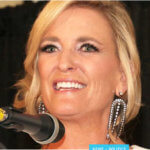 Sharlene Wells is a Paraguayan-American author, singer, and reporter from Salt Lake City, Utah who was Miss America 1985. She worked with ESPN from 1987 to 2002 and was appointed by the U.S. Secretary of Defense to the Defense Advisory Committee on Women in the Armed Forces in 2015.
Sharlene Wells is a Paraguayan-American author, singer, and reporter from Salt Lake City, Utah who was Miss America 1985. She worked with ESPN from 1987 to 2002 and was appointed by the U.S. Secretary of Defense to the Defense Advisory Committee on Women in the Armed Forces in 2015.
